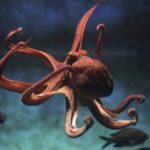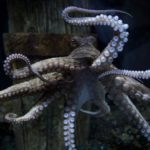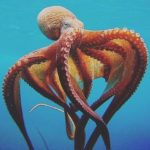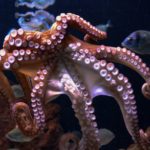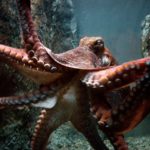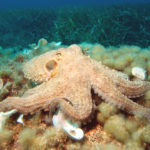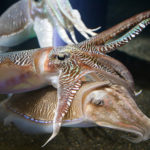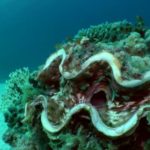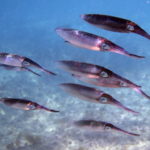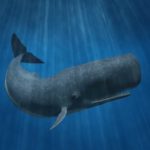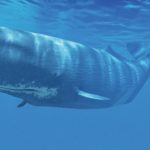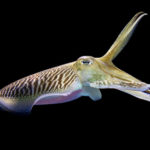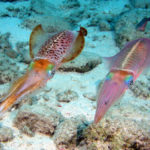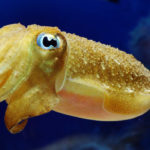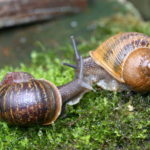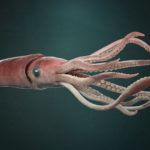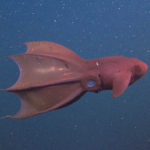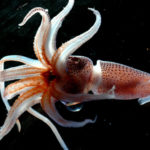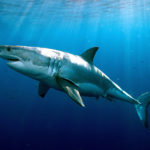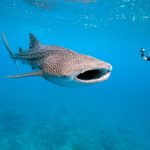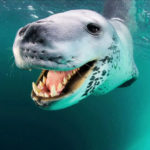Octopus – information
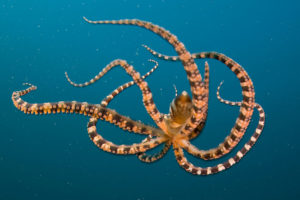 All octopuses have unique differences. There are small octopuses that live near the water surface in the coastal zone. Most of the cephalopods are kept at depths of 30-80 m. Octopuses are found even in cold Antarctic waters. Quite recently, in 2007, the “Antarctic octopus” was discovered and described. The same size for different species ranges from 1 cm to 3.5 m.
All octopuses have unique differences. There are small octopuses that live near the water surface in the coastal zone. Most of the cephalopods are kept at depths of 30-80 m. Octopuses are found even in cold Antarctic waters. Quite recently, in 2007, the “Antarctic octopus” was discovered and described. The same size for different species ranges from 1 cm to 3.5 m.
For the layman, the octopus, with its eight legs, appears to be a relative of squid and cuttlefish. Indeed, they all belong to the same class, but the octopus has a number of unique differences. Octopus does not have any bones or protective bodies, like the same cuttlefish and squid. The only solid part of the body is a beak that looks like a parrot’s beak. The rest of the body is extraordinarily soft, flexible and elastic. It allows the octopus to penetrate into the narrowest slits and holes in rocks and reefs. The only restriction is the beak. Thus, the size of the hole into which the octopus can penetrate is limited in size to its beak.
It is interesting that the ability of an octopus to penetrate into hard-to-reach places at the bottom was also used by man. In the late 20 century. Humankind was surprised when the Japanese used cephalopods to pick up valuable items from a ship that sank a half a century ago. They tied the octopus to the long ropes and lowered them to the depth where the ship rested. Animals, trying to hide immediately, climbed into porcelain vases and jugs scattered near the sunken ship. When they were raised to the surface, octopuses clung tightly to their shelter, letting people raise valuable porcelain from the depths.
The octopus is not aggressive, and tries to squeeze into any mink to avoid a collision with its ill-wishers – morays, sharks and predatory fish.
The octopus does not last long. Most species survive only up to 2 years. Those who live in tropical areas and even less – about six months. The record holder for longevity is the “Antarctic octopus”, reaching 5 years of age.
This short life is connected with a very interesting fact. Octopuses stop eating after mating, and do without food for several months. However, they do not die from hunger at all, but from the fact that they have special glands that act as a “slow-motion bomb”. These glands secrete a special fluid that is “programmed” to kill the cephalopod. If this gland is removed surgically, then the octopus continues life. However, even without this gland, he does not consume food, and still dies of hunger.
The intellectual abilities of the octopus are the subject of debate among many biologists, but some features of their behavior do speak of high intelligence. So, it was experimentally established that octopuses can easily find a way out of the artificial labyrinth, because they have short-term memory that does not allow them to get lost. In addition, they have a long-term memory, thanks to which they can recognize their relatives after a certain time.
The octopus has a very developed nervous system, and only a small part of it is concentrated in the brain. The remaining neurons of the animal are localized in the legs. Reflexes in the animal proceed in such a way that it is suggested that they have a three-level nervous system.
